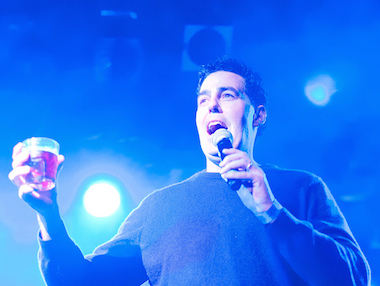Author: Andrew Lapin
KPCC negotiates first three-year contract with union
After 16 months of negotiations, unionized employees at KPCC in Pasadena, Calif., have negotiated their first contract with management.By Andrew LapinAugust 26, 2014Monday roundup: NewsHour, CPB CEO jump on Ice Bucket Challenge; San Fran nonprofit gives crowdfunding tips
Plus: PBS Kids' Chromecast strategy.By Andrew LapinAugust 25, 2014NLRB to resolve contested union election at Baltimore’s WYPR-FM
A dispute over unionization at Baltimore’s WYPR will be resolved by the National Labor Relations Board. WYPR staff voted July 30 on whether ...By Andrew LapinAugust 22, 2014Project crowdsourcing health care costs finds partners in pubmedia
A former New York Times reporter teams up with WNYC, KQED and KPCC to cut through the mystique surrounding the cost of health care.By Andrew LapinAugust 22, 2014Friday roundup: WYPR union effort stalls; Downton Abbey reportedly bans modern undies
Plus: Mike Starling starts an LPFM station, and NPR's creative director talks about her work process.By Andrew LapinAugust 22, 2014Carolla settlement with Personal Audio averts trial for podcast patent case
The company says it no longer intends to sue podcasters who make only "modest amounts of money" from the technology.By Andrew LapinAugust 21, 2014Thursday roundup: Kerger takes Ice Bucket Challenge; NPR’s Kramer shares ideas for engaging members
Plus: Poynter visits St. Louis Public Radio's newsroom, and Vme tries sponsored content.By Andrew LapinAugust 21, 2014Met declares season on schedule after latest union agreement
The opera house is on track to premiere its 2014-15 season as scheduled, with public radio broadcasts to follow.By Andrew LapinAugust 20, 2014Join a webinar today on audio levels with Adam Ragusea, presented by AIR and PRX
Current contributor Adam Ragusea’s July commentary “Why you’re doing audio levels wrong, and why it really does matter” has become one of ...By Andrew LapinAugust 20, 2014Wednesday roundup: Carolla settles podcast lawsuit; PBS Hawaii receives $2M grant
Plus: Frankenstein M.D. launches, and the difficulties of regulating Elmos in Times Square.By Andrew LapinAugust 20, 2014Met reaches agreement with major unions, hopes to avoid lockout
The Metropolitan Opera has reached a tentative agreement with two of the three bargaining units representing its workers.By Andrew LapinAugust 18, 2014Labor strife at Met could leave hole in classical stations’ schedules
A lockout at the New York opera house would force more than 300 stations to make tough choices.By Andrew LapinAugust 14, 2014Thursday roundup: NPR responds to Greenwald; Sex in the Wild charms columnist
Plus: The legal fight over podcasting takes an odd turn, and Kai Ryssdal takes the Ice Bucket Challenge.By Andrew LapinAugust 14, 2014Nonprofit Marshall Project gears up for putting criminal justice reform on national agenda
The Washington Post had a blockbuster front-page investigation with a lengthy Aug. 3 story about an unreliable witness in a Texas execution case. But ...By Andrew LapinAugust 12, 2014Monday roundup: FCC may require online public files for radio stations; Burton hosts “Tweeting Rainbow”
Plus: Paula Kerger takes her interns to breakfast, and Planet Money hops on Reddit.By Andrew LapinAugust 11, 2014




